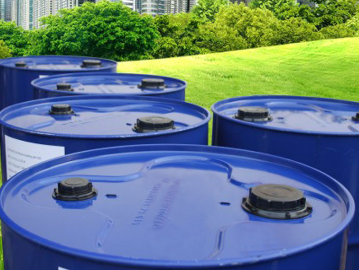Fuel additives and gasoline detergents both aim to provide engine protection, but their methods and effectiveness can vary. To determine which one provides better protection, it is essential to understand their differences and how they work.
Firstly, let's define fuel additives and gasoline detergents. Fuel additives are chemical compounds added to gasoline to enhance its performance or solve specific problems, such as improving fuel efficiency, preventing rust, or reducing emissions. Gasoline detergents, on the other hand, are additives specifically designed to remove deposits and prevent the buildup of harmful deposits in the engine.

When it comes to engine protection, the primary concern is preventing the buildup of deposits, such as carbon deposits, in the combustion chamber and on engine components. These deposits can negatively affect engine performance, reduce fuel efficiency, and lead to premature engine wear. Both fuel additives and gasoline detergents aim to address this issue, but they approach it differently.
Fuel additives, depending on their formulation, can have various protective effects on the engine. Some additives contain detergent-like properties that help clean the combustion chamber and fuel injectors, thereby preventing deposits from forming. Others may contain anti-corrosion additives that protect metal surfaces from oxidation and rust. Additionally, certain fuel additives claim to improve fuel combustion, resulting in less carbon formation and reduced deposits. However, the effectiveness of these claims can vary depending on the specific brand and formulation of the additive.
Gasoline detergents, on the other hand, are specifically designed to remove and prevent deposits that can accumulate in the engine. They contain powerful cleaning agents that help break down and dissolve carbon deposits, sludge, and varnish. Gasoline detergents are commonly found in commercial gasoline formulations, known as "top-tier" gasoline, which are recommended by some automakers for better engine performance and longevity. These detergents are continuously being developed and improved to tackle the ever-increasing challenges posed by modern engine designs and fuel technologies.
Now, to determine which one provides better engine protection, we need to consider factors like effectiveness, ease of use, and cost. In terms of effectiveness, gasoline detergents generally have the upper hand as they are specifically formulated to target and remove engine deposits. Fuel additives, while they can have beneficial effects on the engine, may not always be as effective in preventing deposits from forming. However, the effectiveness can also depend on the type and severity of the deposits and the quality of the additive or detergent being used.
Ease of use is another important consideration. Fuel additives are typically added directly to the fuel tank during refueling. They require little effort to use and are compatible with all gasoline types. Gasoline detergents, on the other hand, are already present in some gasoline formulations, eliminating the need for additional additives. However, not all gasoline contains adequate amounts of detergents, and using gasoline without sufficient detergents may lead to deposit buildup over time.
Cost is also a factor to consider. Fuel additives can vary significantly in price, ranging from a few dollars to much higher prices, depending on the brand and type. Gasoline detergents, while they can contribute to the overall cost of gasoline, are usually not significantly more expensive compared to regular gasoline.
In conclusion, while both fuel additives and gasoline detergents aim to provide engine protection, gasoline detergents generally offer better protection by specifically targeting and removing deposits in the engine. However, the effectiveness can vary depending on the specific brand and formulation of the additive or detergent used. Fuel additives can still have beneficial effects, such as improving fuel combustion or preventing corrosion, but may not always be as effective in preventing deposits. Ultimately, it is essential to choose high-quality gasoline with adequate detergents and consider using additional fuel additives if desired for additional engine protection.